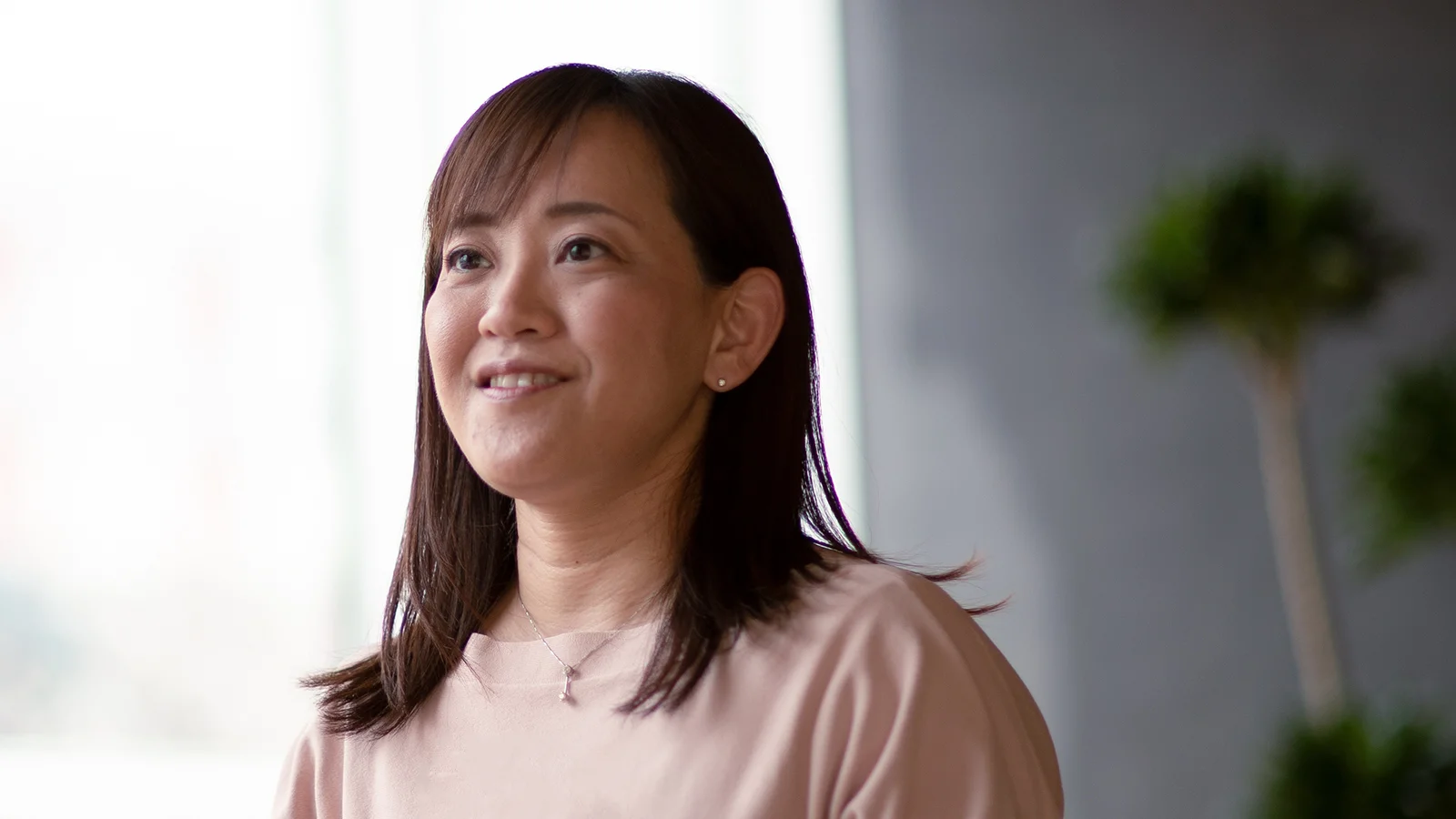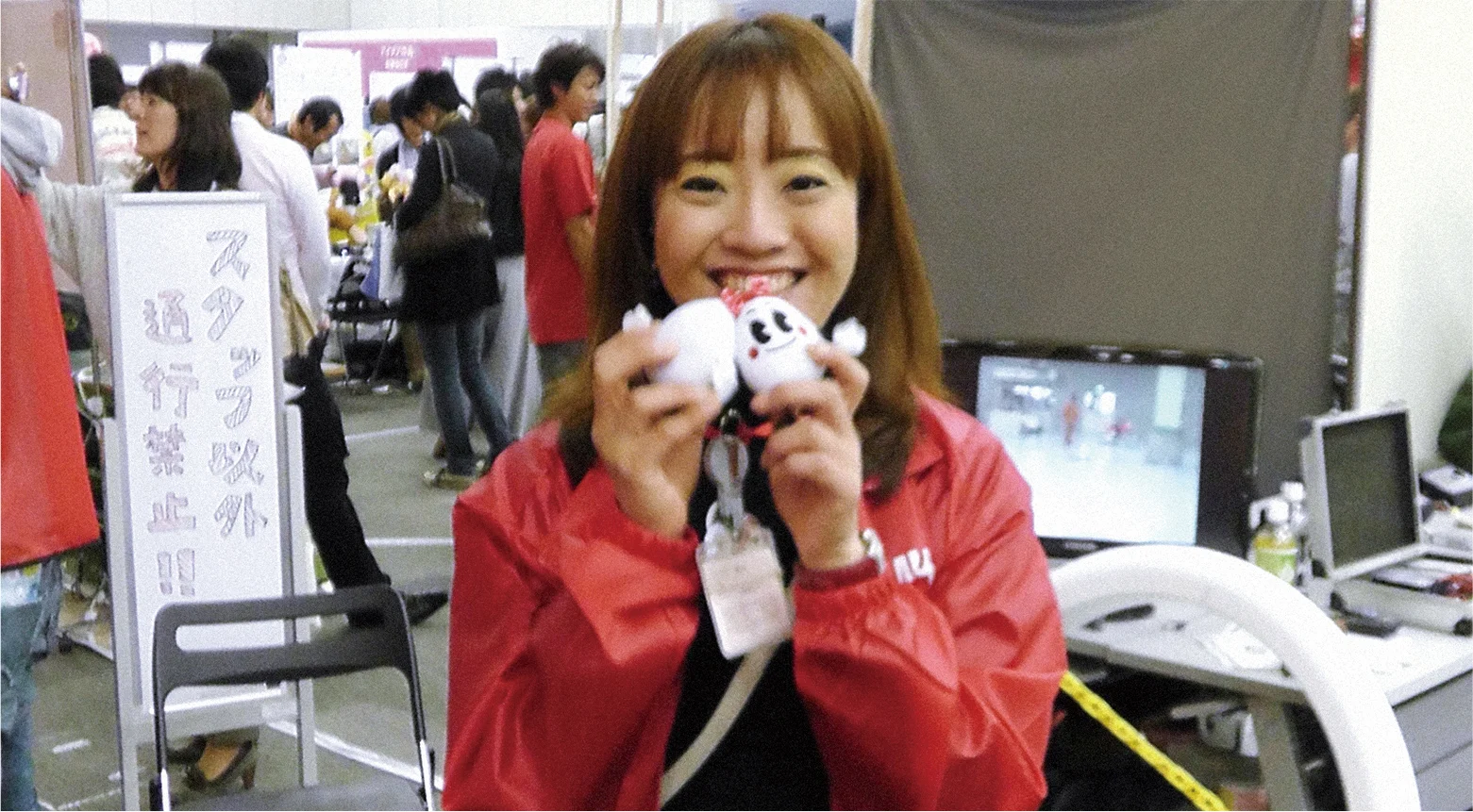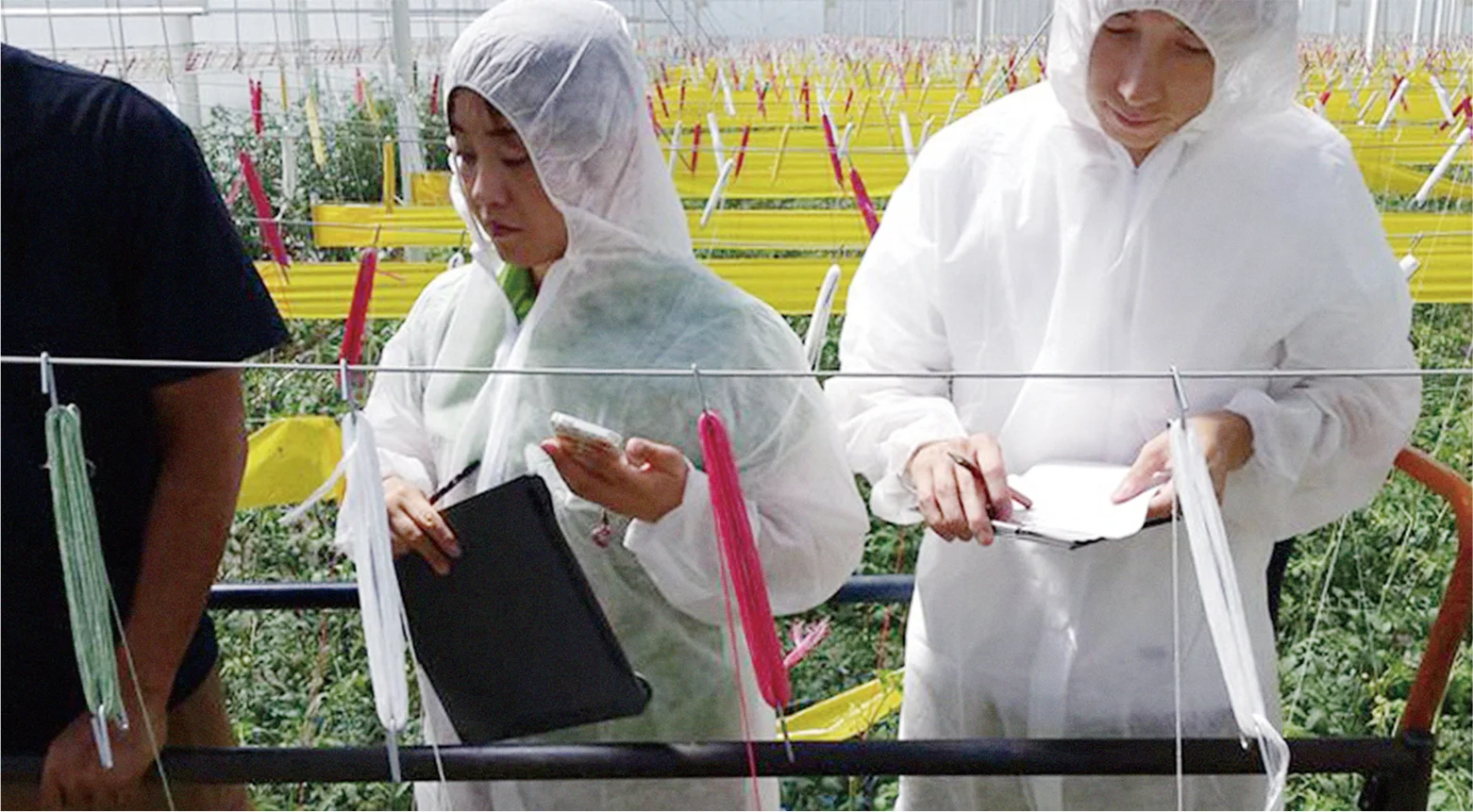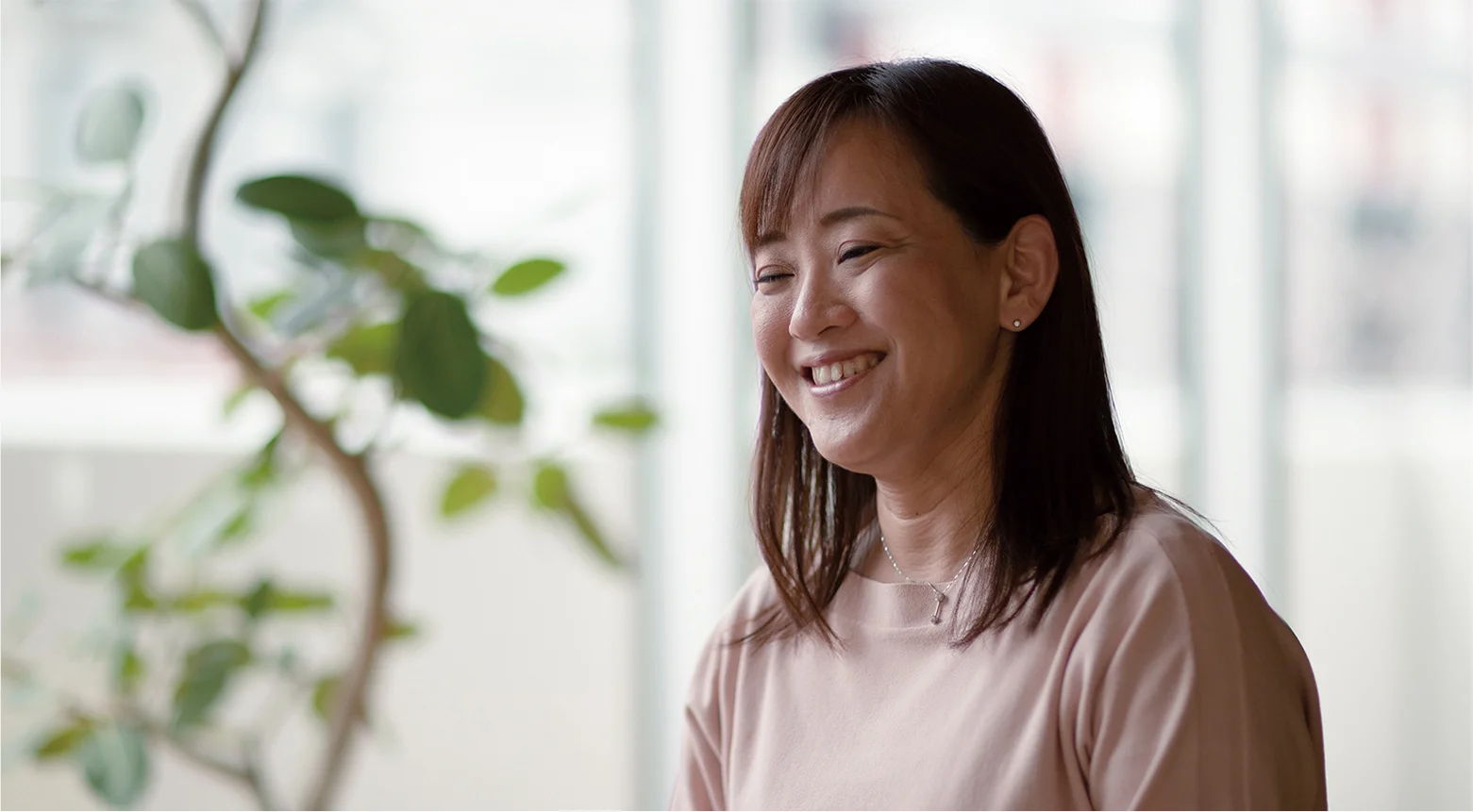

Jul 26, 2021
CAREER & LIFEA new perspective on work:trusting in others rather than trying to handle everything alone
Good manufacturing will get more interesting by co-creation with people concerned
-

FVC Business Promotion Div.Ayako Iwai
After joining DENSO in 2002 as a new graduate, Ayako Iwai worked in the Production Engineering Department, designing production lines and developing component technologies for industrial robots. Since 2014, she has been involved in business planning in the agricultural field utilizing robotics technology.
Ayako Iwai joined DENSO because she was interested in how products are made. After her initial assignment working with automotive-component production line design and industrial robot elemental technologies in the Production Eng. Div., she was reassigned to her current position and tasked with applying her accumulated expertise in the field of agriculture. Each day in this new field was a challenge for her, and she explains how the experience taught her the importance of relying on colleagues.
Contents of this article
An experience that helped me stop trying to do everything on my own and better understand the benefits of working with others

Developing the ability to trust and work with others rather than alone not only helped me on a personal level, but also made my life more enjoyable. I always used to try to handle everything on my own, but it didn’t go well. One experience in particular made me realize the importance of asking others for help when necessary.
In order to learn more about the agriculture which was unknown for me, I visited greenhouses many times and relied on the farmers there. When handling tasks related to event operations and volunteer support work in non-business activities, I relied on other staff members and volunteers.
While I devoted into myself to many things following my interests and worked on them, I felt that both my knowledge and interests to them were being expanded more and more.
Trying to do everything myself was overwhelming

I’ve loved making things (monozukuri) and robots since I was a kid. I always thought Astro Boy was great, and I dreamt of becoming someone who could build that kind of world. That dream stayed with me into adulthood, and I focused on robotics studies at university. Upon joining DENSO, my initial assignment was to the division in charge of factory production line design and other such work, and I was on the front line of the company’s cutting-edge manufacturing operations for 12 years until I got involved in agricultural robot development.
I’ve always been a very curious and interested in various things, so at DENSO I have joined in anything that looks interesting, whether related to my work or not. One example is the company-hosted “Muran” monozukuri ideas contest, for which I have served as sub-leader for running the event.
(During Muran, numerous teams of volunteer participants attempt to come up with innovative products based on new ideas, and then present them and compete for top prizes. It’s a festival celebrating the art of making things, and a very enjoyable and interesting event.)
When I saw some of the operation team members could not keep up with their tasks, I took on many of them saying “Let me do it.” It was because I could not ask so much of them in the volunteer activities and I wanted to look nice. Thus I tended to take on what I thought I could do, but ultimately I overloaded myself. As a result, I couldn’t finish all of it and ended up burning out, and then was reprimanded for not getting everything done.
It was a tough experience—I spent some nights crying myself to sleep. It taught me that, when I have too many tasks to handle, it’s important to trust others and ask for help rather than just trying to do it all on my own.
The benefits of working with others

After that I was transferred to the division that was planning new business in the agriculture industry, and I was expected to apply my knowledge and experience accumulated in the automotive field to the other business fields. One of the event that led to me being transferred to the division was meeting Mr. Kawasaki, a master of invention, at Muran, and going to him for advice of utilizing robots in the agriculture field.
Agriculture field is completely different from the automotive one DENSO has involved in so far. I knew nothing about it, but I was more excited to know the new field I had never met than I felt anxious about it. When I went to do research to the National Agriculture and Food Research Organization (NARO) and laboratories of our partner companies involved in seed and seedling, I was overwhelmed by expertise at first, but I felt pleasure to understand them as I listen to the staffs of the labs.
Utilizing this newfound enthusiasm in my work at DENSO, I began planning and developing a tomato-harvesting robot. Unfortunately, the first prototypes were awful and couldn’t even grasp a single tomato!
However, farmers expected DENSO a lot and believed we could provide something that would work, and for a time I worried about whether I could meet their expectations due to my lack of field knowledge and background.
In order to come up with appropriate robot actions that could automate tomato-picking, I studied the literature on what positions tomatoes plants bear their fruit in, but in actual farms the fruits were positioned in different ways from what I studied before, such as they are with their plants in irregular or disparate positions, and it made the project very tough with other onsite challenges.
I could not apply my predictions based on my experience to the tomatoes, the living things, not like the vehicles, the industrial products.
I thought that I could not achieve the project only with my trial and error, and I went repeatedly to the farmers to talk with them with research papers and brought my prototypes into them, asking them to let me hear their thoughts and to cooperate with me to achieve the project.
In the meantime the farmers and I could have the closer relationship, in which we could rely on each other, such as some problems should be solved by the improvement of robots and others by that of cultivations. This relationship could be built because we could hit it off in drinking parties during the project.
Through that project, I was able to set aside my pride as an automotive-component manufacturing expert and focus on the task at hand, pooling my skills with those of the farmers to make something useful. As we worked long and hard on that agricultural robot together, we eventually discovered which design shapes and movements would work best.
Getting to know others is fascinating because you grow and discover things not possible on your own

It’s important at times to focus on a task and complete it on your own, but most things can’t be done by yourself. That agricultural project taught me it’s important to mutually rely on and work with others in order to create something useful, rather than being competitive and striving to come out on top as we used to do in the era of mass production.
Even now I rely a lot more on others rather than trying to do everything alone; I find myself asking others for help more and depending on them often. Compared to my old self, I think I’ve become much better at identifying others’ strengths and asking for their assistance.
Colleagues have really helped me in many ways. We are members of a company, after all, so there’s no need to attempt everything by ourselves. It’s a joy to expand my knowledge by working with people from many divisions and departments in the company, who have so many different ideas.
Moreover, I’m the type of person who can’t stay quiet and always feels the need to chat or chime in, so I enjoy talking with my fellow associates as long as it doesn’t bother them or interfere with their work. Although we usually just chat about trivial things, sometimes those conversations lead to good ideas for our work, which is always a pleasant surprise.
Personally, I think connecting and communicating with others is invaluable.
【Afterword】
We live in an era that demands we take on challenges in unfamiliar fields and find ways to create new value. As individuals and as a company, we must work in cooperation with others. Ayako Iwai has challenged herself in a new field, striving to stay humble while working together with others in order to create good products. Her approach can teach us something about how to live in a positive, forward-looking manner amid today’s rapid changes.
REACTION
Changing your "Can'ts" into "Cans"
Where Knowledge and People Gather.




Leave a comment